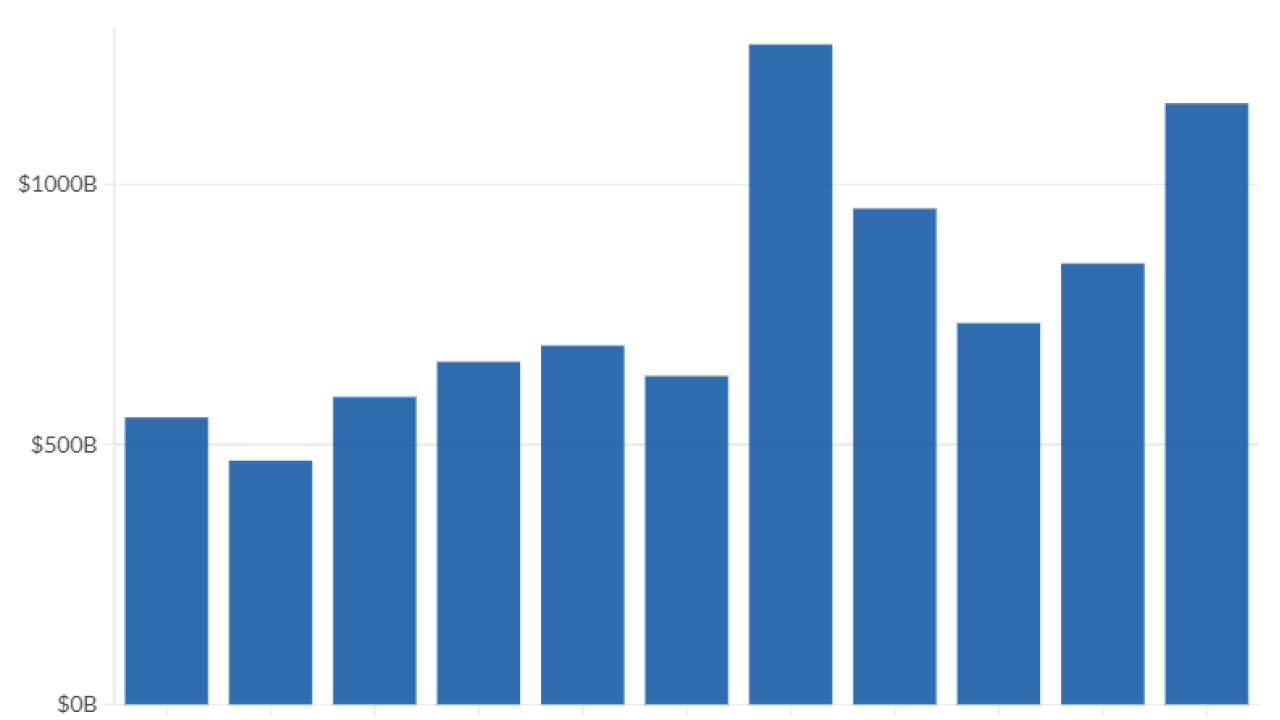Millionaires are a complex bunch. Although a vast majority of them say they remain unshaken by the market downturn, according to a recent Fidelity Investments survey, a significant portion also have a negative outlook for the U.S. economy, currently.
A full 83% of millionaire survey respondents said the market downturn did not shake their confidence in investing, and are not concerned that the recent volatility is here to stay. Beyond that, 75% of millionaires say they feel financially secure. Therefore, it might not be surprising that 43% of survey respondents say they plan to invest more in the stock market over the next 12 months.
When they do, financial advisors can expect more questions about tax implications, according to Fidelity. A majority of respondents, 64%, said they were either “extremely or very concerned” about the impact of potential tax changes on their investments and are preparing accordingly.
Last October, Fidelity Investments polled 1,011 millionaire households. For the study, millionaires are defined as those with $1 million in investable assets, aside from workplace retirement accounts and any real estate holdings.
Yet they also believe that the U.S. economy has a way to go before being sound. On a scale where +100 represents the most favorable outlook, zero is a neutral point and -100 is the most negative outlook, most respondents had an average outlook of -54 for the economy. Although that is weak, it certainly is an improvement from 2009’s reading, at -91.
A deeper look at the timing of past surveys helps explain some of this year’s outcome, according to Stephen Austin, a spokesman for Fidelity Investments. The 2009 survey was done in February, just before the market hit its bottom in March. That might explain such a negative outlook on the part of millionaires. And despite the current outlook, respondents’ outlook for the future is +37, the highest future outlook reading taken since Fidelity began the study in 2006.
Demographic differences might explain another striking dynamic in the survey. Respondents had an average of $3.5 million in investable assets, and annual household income of $379,000, but 42% of them did not feel wealthy. Those who did not feel wealthy said it would take $7.5 million in assets to begin to feel rich, which is unchanged from the 2009 survey.
The group that did feel wealthy (58%) did so at $1.7 million, and was younger than the overall average. That set might have time on their side to save more, Austin said. Considering that an informal definition of feeling wealthy is how a household compares to its peers, younger people might be comparing themselves to others who have not accumulated much wealth.
Only 32% of respondents agreed that they market volatility investors have seen recently will become the new norm, and a mere 17% said the recent financial crisis shook their confidence in investing. Also, 33% of respondents said they made back all of the money they lost in the market from the fall of 2008 through the first half of 2009.





